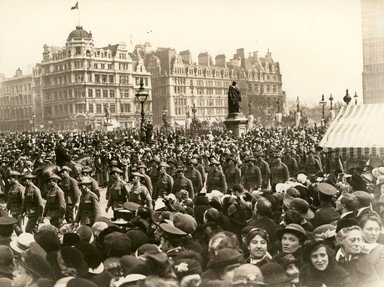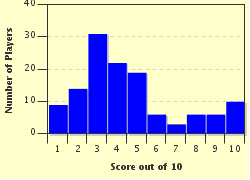Quiz Answer Key and Fun Facts
1. Australians and New Zealanders today still commemorate the anniversary of the April 25 landing of ANZAC troops at Gallipoli. Which three-time Australian Prime Minister was in office at the time of the original landing?
2. You probably know that Charles II was King of England at the time of the Great Fire of London and the Black Death. Who, though, was on the French throne at the same time and, indeed, throughout Charles's reign across the Channel?
3. The American Civil War dominated Abraham Lincoln's presidency. It is ironic that one of greatest but also short-lived Presidents should reign at the same time as one of the greatest, but also the longest-ever serving elected Pope. Who was on the Papal Throne throughout Lincoln's time in office?
4. The Munich Olympic Games were memorable for the sporting exploits of Mark Spitz and Olga Korbut, but they were also marred by terrorist atrocities that saw eleven Israeli athletes and coaches killed. Who was the West German Chancellor at the time of the Games?
5. Who was Roman Emperor at the time of the birth of Jesus of Nazareth?
6. In almost 2,000 years, since Saint Peter became the first Pope in 33 A.D., an Englishman has occupied the papal throne for a little less than five years. Which Frenchman occupied the English throne during most of the papacy of Adrian IV, having become King of England just two weeks after Adrian became Pope?
7. The Battle of Vimy Ridge, one of the best-remembered events in Canadian military history, was part of the Battle of Arras, fought in northern France. Who was Canadian Prime Minister at the time?
8. Although born in Genoa, Italy, Christopher Columbus's trans-Atlantic voyages were sponsored by the husband and wife monarchs Ferdinand II of Aragon and Isabella I of Castile. Who, though, was the Portuguese monarch with whom the Spanish had to make arrangements upon Columbus's return?
9. The First Opium War began with China's Daoguang Emperor attempting to abolish the opium trade rather than legalizing and taxing it. The war lasted three years and culminated with The Treaty of Nanking which left Britain in control of Hong Kong. Which dynasty ruled China at this time?
10. The Belgian Revolution lasts just a month and ends with independence from The Netherlands; Victor Hugo's "The Hunchback of Notre-Dame" is published; the French Foreign Legion was founded; and Bavaria's Prince Otto become King Otto of Greece. Who was U.S. President when all of these events occurred?
Source: Author
EnglishJedi
This quiz was reviewed by FunTrivia editor
gtho4 before going online.
Any errors found in FunTrivia content are routinely corrected through our feedback system.

